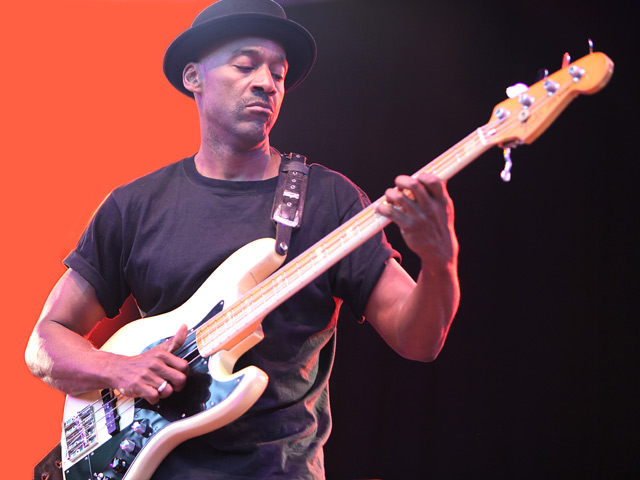Duke, Miller, and Sanborn Are DMS
Jazz Fusion Supergroup Plays Granada on Friday, August 26

Although in the popular imagination the 1970s and 1980s were a time for disco, pop, and rock, they were also the decades in which jazz fusion reached its height, with bands like Weather Report and artists such as Miles Davis embracing the potential of electronic instruments and the funky backbeats of R&B to create a sound that made a perfect soundtrack for cruising with the Playmate of the Month in your Porsche 928. The three musicians who together make up the front line of DMS—keyboardist George Duke, bassist Marcus Miller, and saxophonist David Sanborn—were responsible for many of the biggest and most influential records released in this genre of jazz funk, which predates the heavily circumscribed “smooth jazz” that followed.
Many of their albums from the ’70s and ’80s have come back to life recently as young hip-hop producers mine them for the beat-heavy samples that drive the new music. When DMS arrives at the Granada Theatre on Friday, August 26, their outstanding musicianship and top-notch compositions will be on display in a new and highly effective format that brings the sound of the ’80s up to date for 2011. I spoke with bassist Marcus Miller by phone from his home in New York.
Is this just a trio, or do you have a full band? We’ll be joined by Federico Gonzalez Peña on bass and Louis Cato on drums.
You have a very recognizable sound on the bass, and you are also one of the most copied musicians. Do you notice or mind that there are people who bite your style? For a long time when I heard some of these other musicians, I thought, “That guy must have listened to the same people as me,” or even, “He must have grown up in my neighborhood,” because the sound would be so familiar. Then finally one of my friends took me aside and said, “Marcus, you are getting too old to be saying that. These guys are copying you. That’s why they sound so familiar.” [Laughs.]
You’ve played on an unusually wide range of sessions. How did that happen? When I was coming up, it was before sampling, which meant that if you needed music for something—all the way from a jazz album to a television commercial—you needed to hire actual musicians. So I was part of the last generation of players who were on call all the time with every kind of music. I would play with McCoy Tyner and then do a country session the next day and cut a reggae or a soul track the day after that.
What are some of the things you remember about starting out? Miles [Davis] gave me space. The same was true with David Sanborn. They both let me stretch out and find my sound. I was 18 years old when I started with David Sanborn and 21 when I began recording with Miles Davis. I probably should have been intimidated, but I guess I just didn’t realize that I was young.
What’s been the biggest challenge of your career? The hardest moment for me came when I had to head out on my own and become a solo artist, because I had this ability to do so many different styles, and then suddenly I had to choose one and make it my identity.
How has the DMS tour gone so far? The tour has been going for a month now, and we have played all kinds of venues, from big outdoor festivals where people are picnicking on a lawn to classical concert halls where the bass and the drums have to be really careful not to play too loud. The response so far has been great, really amazing.
4•1•1
The Granada Theatre Concert Series presents DMS at the Granada Theatre (1214 State St.) on Friday, August 26, at 8 p.m. For tickets and information, call 899-2222 or visit granadasb.org.



